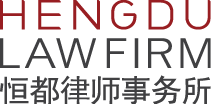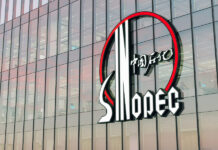Securitization is a financing approach by which an issuer creates tradable securities supported by specific asset portfolio or cash flow. While traditional securities are backed by issuers, securitization schemes are backed by pools of assets.

JIANG FENGTAO
恒都律师事务所创始合伙人
Founding Partner
Hengdu Law Firm
In addition to asset-backed notes, there are two categories of securitization schemes in Chinese markets, including the ones backed by credit assets and others by corporate assets. In short, securitization mainly functions as a process to transform an asset or a pool of assets with high value, poor liquidity and expectable steady income into liquid, negotiable securities. While providing the originator with access to capital, it enables investors to benefit from future income of the underlying assets or gain proceeds by transferring securities held thereby on capital markets.
Specifically, securitization provides three benefits for an issuer. First, providing the issuer with access to an emerging source of funding with relatively lower cost, it helps the issuer liquidate its long-term assets or beneficiary rights quickly to meet liquidity needs. Securitization outperforms traditional sources of funding such as lending by financial institutions and external investments with lower financing cost, more operational flexibility and fewer challenges in seeking capital.
Second, securitization provides the issuer with an opportunity to optimize the structure of its financial statements and mitigate asset risks. As an important feature that attracts especially companies with a strong focus on information disclosure such as public companies, securitization is also able to help the issuer adjust its asset/debt structure so that it has improved financial statements. Besides, liquidation of credit and other assets also help avoiding asset risks and ensure realization of rights.

YUAN SHUYANG
恒都律师事务所资本市场律师
Capital Market Associate
Hengdu Law Firm
Third, securitization may help improve corporate reputation. The issuance of a securitization scheme and subsequent transfer of negotiable securities may help the issuer’s profile spread more widely within a certain range.
The authors can see that securitization provides exactly what is wanted by private equity (PE) funds and their managers. First of all, optimized statements as one of the results of securitization help a PE fund manager come up with a better asset/debt structure, both for the manager and for the underlying assets, which translates into a more benign track record to be disclosed to investors. Second, as the issuer becomes more widely known through a process of securitization, more qualified investors are willing to be informed about and get familiar with the issuer. Therefore, if an innovative solution can be designed to securitize shares in a PE fund, the issuer may be able to rise meaningfully on the industry influencer and innovation leader charts.
More importantly, securitization provides PE funds with the opportunity to find additional liquidity. In view of the challenges faced by PE funds in China, including long payback periods, slim chance of exiting, and poor liquidity, securitization will undoubtedly become an effective approach to producing liquidity for PE funds. For investors in a PE fund, securitization is a new source of vitality that brings an innovative exit option as a complement to traditional options, including public offering and transfer
of equity.
That is why regulators are receiving requests to implement a pilot programme allowing securitization of PE fund shares in recent years as private equity investing activities boom in China. Some professionals believe that securitization of PE fund shares is very likely to become a significant driver for the private equity investment sector.
In the Chinese market, where most securitization schemes are incepted for a pool of debts or beneficiary rights, to this day no schemes with PE fund shares as underlying assets have been introduced, despite the strong demand. This phenomenon is best explained by the risks and barriers, thought to be almost insurmountable, posed by the existing regulatory and policy environment on PE fund share securitization.
The existing PRC legal framework for securitization comprises mainly of the Administrative Regulations Concerning Securitization by Subsidiaries of Securities Companies and Fund Managers, issued by China Securities Regulatory Commission, and the Administrative Measures for the Pilot Programme of Securitization of Credit Assets, issued by China Banking Regulatory Commission. Providing substantially consistent definitions about underlying assets, the two documents require that an underlying asset must have clear ownership, be able to produce independent, predictable, sustainable and steady cash flow, and be linked to specific properties or property interests. They also require trading to be conducted on an authentic basis and at fair price.
Meeting these requirements is challenging for PE fund shares. Since PE funds reap high profits by assuming high risks, and given the lack of an equity trading market for non-public companies in China, it is difficult to determine what is the right way of exiting, or whether there is any difference between the realized and expected exit prices. The uncertainty surrounding recognition of asset value also adds to the difficulties of determining a fair transaction price precisely. Moreover, unlike debts or beneficiary rights that produce a steady cash flow, PE funds are exposed to significant earnings volatility. That is why it is believed that the requirements about fair transaction price and sustainable, steady cash flow pose insurmountable obstacles for PE funds.
Jiang Fengtao is the founding partner and Yuan Shuyang is a capital market associate at Hengdu Law Firm
北京市朝阳区建国门外大街1号
国贸大厦3期B座50层 邮编:100004
50/F, Block B, China World Trade Center Tower 3
No.1 Jian Guo Men Wai Avenue
Chaoyang District, Beijing 100004, China
电话 Tel: +86 10 5985 2999
传真 Fax: +86 10 5760 0599
电子邮箱 E-mail:
hengdulaw@hengdulaw.com
www.hengdulaw.com






















